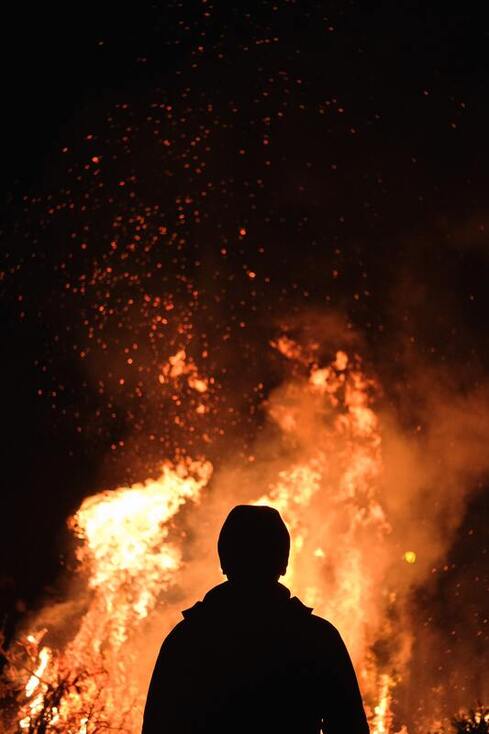 Exodus 3:1-15 | Psalm 105:1-6, 23-26, 45c | Romans 12:9-21 | Matthew 16:21-28 “But Moses said to God, ‘Who am I that I should go to Pharaoh, and bring the Israelites out of Egypt?’” What are some things that bring you comfort? A familiar song? Your favorite meal? The voice of a dear friend? Something that I find quite comforting is fire… especially drawing close to a hot woodstove on a cold, gloomy day. The feel of the heat, the smell of the woodsmoke, the site of the dancing flames, I love all of it. To me, fire brings comfort. But I know it can also be dangerous… unpredictable… unsafe, so to speak. This same object can be both the source of delight, as well as a cause of destruction. And what sometimes brings us comfort can also disrupt everything. In today’s Old Testament reading from the book of Exodus, we heard about Moses’ lifechanging encounter with the Living God. Many years and troubles have passed for Moses since our reading last week: Having been spared as an infant from the fear-driven violence and cruel bloodshed of Pharaoh, the Israelite Moses ends up being raised in the palace of Egypt’s king: the adopted son of a princess. As an adult, Moses becomes troubled by the oppression of his people, and one day he takes matters into his own hands, and murders an Egyptian man who was beating an Israelite slave. When his crime becomes known, Moses flees out into the dessert… to the land of Midian… where he tries to start his life over again: he gets married, and begins working in the family business, shepherding. And here we find him today: miles away from his past and from his suffering people, tending sheep on Mt. Horeb, or Sinai, in the wilderness. And here, God finds him too… and disrupts everything. Out of the midst of the burning bush, the Living God calls out to Moses with words of both grave dis-comfort, and ultimate security. In this surprising exchange God is taking action to change the course of the story: for Moses, for Israel, and most dramatically for Pharaoh, challenging his brutal reign and prideful claim to power, and bringing to light God’s character of compassion and rescuing love. Our text today dwells on Moses: God disrupts his new life, and calls Moses to go back to the land he fled from, to confront the most powerful leader of the most powerful empire of his day, and demand Pharaoh let his slaves… let God’s people, go. What God gives to Moses, out of the blue, is an overwhelming, and dangerous mission. A scholar, Brevard Childs, sums up the effect this call had on Moses: “What began as just another day doing the same old thing, turned out to be an absolutely new experience for Moses. The old life of shepherding was ended; the new life of deliverer was beginning… The initiative is shifted from Moses to God. The ordinary experiences emerge as extraordinary. The old has been transformed into the new.”[1] Suddenly Moses’ life is being taken up by God and drawn into His redemptive purposes and work in the world… that God’s mercy, and justice, and holy love might shine out into the darkness. Are there moments in our own lives when things like this happen to us? Not God’s voice speaking to us from within a burning bush, but much more subtle moments when out of nowhere we are confronted with our own calling? When we know within our bones we are being urged to take action… to take part in something true and good, but also frightening? Those times when the Living God seems to be disrupting our comfortable stories in order to bring His New Life into our world? As God’s people, Christians have been called to a distinctive, some might say disruptive form of life: set free from the grips of sin, in order to share in God’s holy love. In our reading from Romans today we can catch a glimpse of what that kind of life looks like, as St. Paul unpacks what it means to live for Christ; to be a living sacrifice. Some of it sounds wonderful: “love one another with mutual affection; outdo one another in showing honor.” Some of it sounds daunting: “Contribute to the needs of the saints; extend hospitality to strangers. Live in harmony with one another; associate with the lowly; do not claim to be wiser than you are.” And some of it sounds dangerous: “Bless those who persecute you; bless and do not curse them… never avenge yourselves… if your enemies are hungry, feed them; if they are thirsty, give them something to drink.” Isn’t this going a bit too far? Isn’t this a little extreme? I mean, the world we know doesn’t work this way… blessing our enemies… refusing revenge… isn’t that a recipe for disaster? Won’t that lead to people taking advantage of us? How can we keep ourselves safe when God’s calling us to live so differently… to embrace the way of peace in an often hostile world? In this we can hear echoes of Moses’ concerns about facing Pharaoh: feeling uncertain, inadequate, afraid and vulnerable. And here God’s words of comfort come to us as well… speaking to us in our distress as we seek to follow Him. Whatever Moses may face before Pharaoh… whatever we might face on our road… this is the comfort God offers us all: “I will be with you.” “I will be with you.” The comfort we have comes from trusting that the Living God is with us. John Sailhamer, another Old Testament scholar makes a noteworthy point: “God responds to Moses’ question not by building up Moses’ confidence in himself but by the reassurance that he would be with him in carrying out his task.”[2] Where today we might expect someone to encourage Moses to think more positively… to dig deep down and find the inner strength to face his challenges, God doesn’t leave Moses to lean on his own power, but to find the comfort and strength he needs by leaning on the LORD. The point isn’t that Moses is up for the task, but that the LORD almighty is. The scholar John Goldingay makes this point even more strongly: “Moses is not being commissioned on the basis of his experience in the palace, his initiative, or his leadership potential… What counts is God’s “I will be with you.” This is not merely a promise that he will feel God is with him but a promise that God will be with him actively whether he feels it or not.”[3] The Living God, the LORD, Yahweh, the One who truly IS, invites Moses… invites Israel… invites us to trust Him. Even as He calls us to go where we’re frightened to go. Last week we heard how Peter boldly confessed his faith in Jesus, proclaiming that He was the Messiah; God’s chosen Saviour. But today we heard how, moments later, Peter tries to disrupt Jesus’ mission… to dissuade his Master from taking the road of suffering to the cross. No doubt, Peter thought he was helping… trying to offer support and comfort. But he was ultimately undermining God’s greatest act of salvation, not only for Israel, but for our entire world, trapped and burdened by the weight of evil and sin. Jesus does not take the bait, and after calling Peter out, Christ turns to His disciples to make clear to them their calling: “If any want to become my followers, let them deny themselves and take up their cross and follow me. For those who want to save their life will lose it, and those who lose their life for my sake will find it.” The road of discipleship… of the Christian life… is not traveled by playing it safe, but by trusting the LORD. By following the Living God, and His Son who was sent to save us. Who promises again and again that He will be with us always. Christ’s call is disruptive: it leads us to the cross, and to the dismantling of sins grip on us, both inside and out. Dying to all that is not of God in us. But it is precisely in following Christ to the cross that we find New Life in Him: freed by His sacrifice, forgiven by His blood, and filled with His Spirit to walk with Him in holiness. Though the Living God can be disruptive, unpredictable, even dangerous… He is also the source of our deepest comfort, freedom, and life. In sending Moses back to Egypt, as frightening as that may have been, God disrupted the power of Pharaoh and brought new life to His people. In sending Jesus the Son of God to take our place on the cross, God disrupted the powers of evil, to set us all free from sin. And now, in sending the Church out into the world, through the power of His Spirit, the Living God is at work in us disrupting the darkness through His holy love: Changing the stories of those who find in Him eternal life. And wherever we are called to go, He promises to be right there with us. May that promise be our comfort, now and forever. Amen. [1] Childs, B. S. (2004). The Book of Exodus: A Critical, Theological Commentary. (P. Ackroyd, J. Barr, B. W. Anderson, & J. L. Mays, Eds.) (p. 72). Louisville, KY: Westminster John Knox Press. [2] John H. Sailhamer, The Pentateuch as Narrative (Grand Parids, MI: Zondervan Publishing House, 1992), 245. [3] Goldingay, J. (2010). Exodus and Leviticus for Everyone (p. 19). Louisville, KY; London: Westminster John Knox Press; Society for Promoting Christian Knowledge.
0 Comments
This week we are continuing our journey through the book of Exodus, where the Living God reveals Himself as Israel's Rescuer and Redeemer. Today we hear God's self-disclosure to Moses: unveiling His divine Name, identity, character, and purposes. Also, last week I issued a challenge for our whole Parish to begin reading through the book of Exodus on our own, each at our own pace, in order to help us get a deeper sense of what God is up to, both in this book, and in our world. May the LORD God bless us as we seek to grow in His knowledge and saving love. Rob+ Our service of Morning Prayer, Bulletin, and Sermon this week can be found here: And our Songs for this week can be found here:
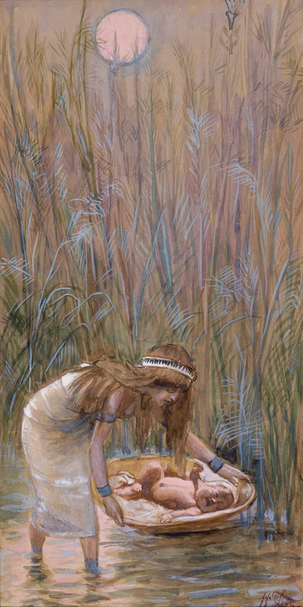 Scripture Readings: Exodus 1:8-2:10 | Psalm 124 | Romans 12:1-8 | Matthew 16:13-20 “But the midwives feared God; they did not do as the king of Egypt commanded them.” So last week we found ourselves in the middle of an election again: we New Brunswickers will be choosing a new Provincial government in a little over three weeks from now. Political signs have been popping up around our communities, from candidates vying for our confidence, and for our votes. Right now, we are being offered competing visions for our future: different agendas for our Province… our communities, and our homes. But we are not simply being urged to agree with what each candidate or party stands for… we are being urged to take action. To do something tangible to help these leaders to accomplish their visions: we’re asked to cast our votes to empower them to take the lead in our land. In a way, election days ask us to offer up our allegiance. Regardless of whether or not our party or candidate of choice gets voted in, our democracy regularly requires us to personally choose sides… and to take a simple, concrete step to show we’ve offered them our support. We can find something similar going on in our Scripture readings today: In them, we are also being offered a unique vision of our future… inviting us to take part in it, not only with our minds, but also in concrete actions taken day in and day out. Unlike our elections though God is not after our votes for a few years in office… God is seeking our lifelong allegiance… our ongoing confidence and faithfulness. And though He wants us to join with Him and take part in what He is doing in the world… He does not actually need our co-operation or endorsement to see things through. The Living God is not really like the leaders we know here on earth: He does not depend on our approval or support… rather, God is freely and lovingly at work bringing about New Life. In our Gospel reading today we heard one of the turning points in Matthew’s story. The disciples had been following Jesus for a while now up to this point, and they had begun to get a glimpse of what He’s about: His vision and mission in the world. They had seen Him cure the sick, miraculously feed the hungry, and display amazing power over spirits, and the forces of nature. They have seen Him go toe-to-toe with influential religious groups, and had heard Him teach the crowds about God’s good Kingdom. And now, Jesus, their Rabbi, asks them an important question: “Who do you say that I am?” Peter answers “You are the Messiah,” the Christ, the Chosen One, “the Son of the living God.” This is a deeply pious statement: an expression of hope and faith, that in Jesus the Living God’s mission of mercy and justice are truly at hand. That in Jesus God’s promised deliverance, for which their people had hoped and prayed, was finally coming about. In Him, God’s salvation has come. But Peter’s words are not simply pious, they’re political words as well… words that challenged the claims of others, like Caesar, or Herod, who seemed to be holding the world in their hands… words calling for concrete steps, for acts of allegiance to back them up. For to genuinely claim that Jesus is the Messiah, the Son of the Living God, it means a reordering and realigning of our lives is underway… so that, when the choice between His vision and mission is pitted against any other… we are called to enact our allegiance to Him: to live out our faithfulness. Sometimes this is an easy choice to make… often it’s not… especially when the stakes are high, and lives are on the line. That’s the kind of situation we heard about in our Old Testament passage this morning from Exodus: as the King of Egypt, Pharaoh, tries to cling to his hold on power, by ordering the Hebrew midwives to slay any male Israelite children being born. What a horrible vision of life when one man’s insecurity fuels the oppression and even murder of so many fellow humans. Sadly, our world has known far too many others who have followed Pharaoh’s lead… treating people created in God’s image as expendable and worthless… as mere obstacles to be removed in their thirst for power. But in Exodus we hear about a different kind of power: the power to say ‘no’ to injustice and wickedness… a power that flows from the reverent fear of God, of placing His will above all others. We heard about to women, midwives named Shiphrah and Puah, who enacted their allegiance to God by defying Pharaoh’s evil demands, and saving the Israelite newborns. Risking much, they mess up Pharaoh’s genocidal intentions, at least for a time. And we are told God honours their faithfulness and draws them into His mission. Through their willingness to defy Pharaoh and live in line with God’s vision for the world, God brings to His people a deliverer… Moses - whom one day will be sent to confront Pharaoh on the LORD’s behalf: bringing low Pharaoh’s worldly power and pride, and ultimately defeating him, setting Israel free. On their own it would be hard to see what lasting difference they could make, but through their simple powerful acts of faithfulness, these two Hebrew women took part in the much bigger story of God’s great rescue mission. “The author’s point is clear enough:” one scholar writes: “God is at work in these events to bring about his plan, and no one, not even the great power of the gentile nations, can stand in his way.”[1] Even if it is hard to see how our choices and actions might make a difference, this story invites us to see God at work in our lives as well: eager to draw us into what He is doing in our world, bringing about His New Life to those being crushed down and oppressed. After Peter’s proclamation that Jesus is the Messiah, our Lord goes on to tell His disciples that He too has been sent, like Moses, to confront and disarm the enemies of God… But to do so, Jesus, the Saviour, would be rejected, undergo great suffering, and be put to death. But rather than being a tragic end this was actually the way the powers of evil, sin, and death itself would finally be brought low, and ultimately defeated… for after three days, Jesus would be raised up again from the dead, filled with God’s New Eternal Life to share with the world. Despite all the schemes and plans at work in the world… In Christ Jesus God’s rescue mission has truly come about, and it will have the final say. And through the Holy Spirit the Living God remains at work today. Often hidden from our view, and rarely operating in the ways that we would have guessed… God is still confronting and disarming the powers of evil through His faithful people: bringing forgiveness, wholeness, and holiness, bringing His New Life into our world, sharing the blessings of Christ’s victory through our simple faithfulness. When we choose to be true to God’s Kingdom, to let His vision and saving work come to life in us, there’s no telling what the Living God has in store. I’ll close now by repeating the words of St. Paul in his letter to the Romans, urging us all to offer our full allegiance our entire lives to the Lord: “I appeal to you therefore, brothers and sisters, by the mercies of God, to present your bodies as a living sacrifice, holy and acceptable to God, which is your spiritual worship. Do not be conformed to this world, but be transformed by the renewing of your minds, so that you may discern what is the will of God—what is good and acceptable and perfect.” By the grace of God, may this be so. Amen. [1] John H. Sailhamer, The Pentateuch As Narrative: A Biblical-Theological Commentary (Grand Rapids, MI: Zondervan Publishing House, 1992), pg. 242. The story of Exodus, of the Living God's merciful rescue of Israel from slavery in Egypt, and calling them into a blessed and gracious community with Him, is one of the most foundational parts of the story of Scripture: laying much of the groundwork for how Christians throughout the centuries have understood the character and faithfulness of the LORD, and pointing ahead to God's ultimate act of salvation for the world through the life, death, and resurrection of Jesus Christ. Beginning this Sunday, we here at St. Luke's GP will be taking a closer look at the story of Exodus. Our sermons this Fall will be focusing on our Old Testament Exodus readings, and when it resumes in September our Online Bible Study will be exploring the story of Exodus as well. I am also challenging us all as a Parish to begin reading through the book of Exodus on our own, each at our own pace. As we do so, we may just be surprised at what we find in its pages, including some strong connections to our own contexts and stories of faith. Finally, in order better understand where Exodus fits into the wider story of Scripture, here is a short (12+ minute) video from the Bible Project offering an informative overview of the whole Old Testament, or TaNaK, as it is originally known. May we be encouraged and enjoy exploring Exodus together this Fall, and may the LORD continue His merciful work through us in the world. -Rob+ Our Morning Prayer service, Bulletin, and Sermon for this week can be found here: And our Songs this week can be found here:
Scripture Readings: Isaiah 56:1, 6-8 | Psalm 67 | Romans 11:1–2a, 29–32 | Matthew 15:10-28
“But what comes out of the mouth proceeds from the heart, and this is what defiles. For out of the heart come evil intentions, murder, adultery, fornication, theft, false witness, slander. These are what defile a person, but to eat with unwashed hands does not defile.” Cleanliness is a big concern these days… of course, for good reason. Though this was true long before the rise of COVID-19, and the renewed attention that has come along with it to simple practices like frequent hand-washing. The old phrase “Cleanliness is next to godliness”[1] was quoted by the Anglican Priest and Methodist founder John Wesley, way back in a sermon from the 1780’s entitled “On Visiting the Sick”, and now questions of cleanliness come up when we consider visiting with anyone. As blessed as we have been for the most part here in Atlantic Canada, this ongoing global pandemic has still made us all more aware of the risks of being unclean… and what to do to avoid it. In our Gospel passage this week we have two seemingly unrelated stories: Christ’s teachings on what it means to be truly unclean, brought about by a dispute about eating food with unwashed hands, and an uncomfortable encounter between our Lord, and a Canaanite woman. But as different as these stories may seem on the surface, held together they help to reveal what we could call spiritual cleanliness… helping us to understand what it means, and what it does not mean, to draw close to, and share our whole lives with, the Living God. In the first part of our Gospel reading we hear Jesus teaching His followers that “it is not what goes into the mouth that defiles a person, but it is what comes out of the mouth that defiles” (Matt. 15:11). He says this in response to a dispute about handwashing before eating, which the Pharisees, a devoutly religious group, insisted should be practiced by all… even though this tradition was not found in the Old Testament Law. Now given what we know today about how germs and diseases are spread, everyone washing their hands before eating was certainly a good idea when it comes to promoting health. But the issue here was not really about sanitation, but about sacredness: this was a debate about ritual purity… about cleanliness based on God’s Law, not about a healthy lifestyle or disease prevention. In the ancient world, and in the Old Testament Law the concept of ritual purity, of spiritual cleanliness, was extremely important for maintaining a healthy relationship with the divine. Being ritually clean was about upholding the sacredness of God, recognizing that He is holy, and that to be with God, to share His life, we must be made holy too. One scholar writes that, in the Bible, “Cleanness is a condition of being obedient to the statutes and ordinances of the law, which allows one to encounter the holy without danger.” [2] Being unclean meant that one was not prepared to draw close to the LORD… until the proper steps were taken to make one clean again. Hartley goes on to not that “There is no harm, however, in becoming unclean. Uncleanness neither harms or destroys. Destruction comes from the holy when uncleanness is brought into its presence... The danger lies in mixing holiness and uncleanness.”[3] In order to avoid any divine trouble, the Pharisees had gone well beyond the Old Testament Laws, and insisted that their own tradition of ritual handwashing made them spiritually superior. In short, they were focussing on outward practices they thought would make them fit to be closer to God… and they were upset when others, like Christ’s disciples, did not follow their lead. But Jesus goes on to explain to His confused followers that the Pharisees are actually way off track; that for all their extra traditions that help them appear clean on the outside, they were not really doing much about being made clean on the inside… which is much more significant in shaping our lives: “[W]hat comes out of the mouth proceeds from the heart, and this is what defiles. 19 For out of the heart come evil intentions, murder, adultery, fornication, theft, false witness, slander. 20 These are what defile a person, but to eat with unwashed hands does not defile.” Here Christ is warning not only the Pharisees, but all who merely try to seem close to God on the outside, while letting sin run amok under the surface... where it draws us into all sorts of destructive and self-destructive ways of life. Christ wants us to seethat Living God is concerned with our whole lives: our outward, public actions, and our inner selves as well. We need to do more than wash our hands: we need deep cleansing through and through. After this, the Gospel story quickly shifts to this strange encounter between our Lord and a Canaanite woman… a mother… desperately begging Jesus to rescue her daughter from the destructive influence of a demon… a being also known as an unclean spirit… a rebellious spiritual creature at odds with the will of the Living God. So much about this story is hard for us to hear: We’re told that Jesus at first simply ignores her heartfelt pleas… because she is not an Israelite; she is a Gentile, a Canaanite… a descendant of Israel’s enemies from centuries long past… and Christ says He “was sent only to the lost sheep of Israel”. This response seems cold enough, but when the Canaanite mother does not give up Jesus makes use of an insulting Israelites term used to describe those “unclean” Gentiles: dogs. Why does Jesus respond this way? What is going on here? As I have said before, it is always dangerous to try and explain away the things about Jesus or the Living God that make us uncomfortable. We can easily fall into the temptation of trying to smooth over the rough edges of our faith instead of being open to God’s disruptive word to us. In fact, there are times when God seems to intend for us to be uncomfortable… to wrestle with Him, and seek to understand what He is doing… which can also force us to face what’s really going on in our own hearts… and exposing what lies deep beneath the surface of our lives. Whatever the reason for Jesus’ strange response to the Canaanite mother, let us consider what happens as a result: In the face of apparent silence… rejection… and even insult, this Canaanite Gentile shows her true colours what was in the depths of her heart: she persists… she does not give up… she continues to believe… she places her faith, and the fate of her daughter, on the mercy of Jesus. Unlike the Pharisees, who seemed very concerned with being clean on the outside, yet who responded to Jesus’ ministry with insults and rejection… this unclean Gentile persevered and placed all her hope in Jesus, who sees and praises her for her great faith, and sets her child free… holding her up as an example for all who would follow Him. The theologian Stanley Hauerwas points out how her humble faith continues to inspire the prayers of the Church even today: “This woman, this unknown Canaanite woman, not only becomes for us Gentiles the forerunner of our faith, but her reply to Jesus teaches us how to speak. It is not accidental that we are taught to pray before we receive the body and blood of Christ: We do not presume to come to this thy Table, O merciful Lord, trusting in our own righteousness, but in thy manifold and great mercies. We are not worthy so much as to gather up the crumbs under thy Table. But thou art the same Lord whose property is always to have mercy. Grant us therefore, gracious Lord, so to eat the flesh of thy dear Son Jesus Christ, and to drink his blood, that we may evermore dwell in him, and he is us. Amen.”[4] The Canaanite mother’s faith in the mercy and grace of Jesus point us to the source of our spiritual cleanliness: Christ’s own life offered in holy love on the cross for the world. N.T. Wright makes the point that “Ultimately, [Jesus] is himself the remedy, as in his death and resurrection, and the gift of the spirit, he deals with the wickedness and uncleanness that infects the human race.”[5] It is through His saving work that we can be made clean, and now through what Jesus has done for us all can we truly draw near to, and share in, the life of the Living God. If we seek to be cleansed, inside and out, we need more than outward rituals can offer. Like the Canaanite woman, we are invited to persist in placing our faith and our hope in Jesus: trusting in His mercy from the depths of our heart… even when we are tempted to believe He does not care. Time and again God has shown Himself to be rich in mercy towards all who cry out to Him. So let us hold fast to our faith and place our fullest hope in Him. Amen. [1] John Wesley, Sermon 98 ‘On Visiting The Sick’ II.6 May 23, 1786. Found at Wesley Center Online: http://wesley.nnu.edu/john-wesley/the-sermons-of-john-wesley-1872-edition/sermon-98-on-visiting-the-sick/ [2] Hartley, J. E. (1979–1988). Clean and Unclean. In G. W. Bromiley (Ed.), The International Standard Bible Encyclopedia, Revised (Vol. 1, p. 720). Wm. B. Eerdmans. [3] Ibid. [4] Hauerwas, S. (2006). Matthew (p. 144). Grand Rapids, MI: Brazos Press. [5] Wright, T. (2004). Matthew for Everyone, Part 1: Chapters 1-15 (p. 198). London: Society for Promoting Christian Knowledge. 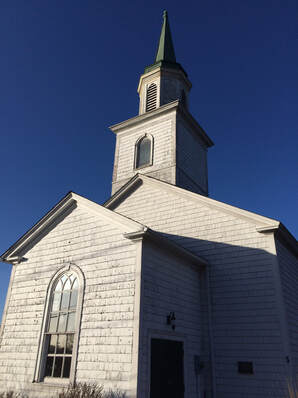 It is very good to be back at St. Luke's GP after a bit of time away this summer. I am looking forward to gearing up in our ministry together this Fall, as we seek to serve Christ and to bless our community in this challenging time for our world. Thank you to all who faithfully helped hold the fort these last four weeks (especially to our layreaders, wardens, musicians, and all who work behind the scenes). Many blessings, in Christ. Rob+ Our service of Morning Prayer, Bulletin, and Sermon this week can be found here: And our Songs for this week can be found here:
From July 19 until August 15, Rev. Rob Montgomery will be on vacation. During this time, we will continue to hold our In-Person Morning Prayer services each Sunday at 10 AM in St. Luke's Parish Hall, and offer our At-Home Morning Prayer resources here on our St. Luke's GP Website/Blog. Please contact Susan Sleep if you would like to sign up for an In-Person service, and you can contact our Parish Wardens (Rosemarie Kingston & Joyce McElman) if you have any other questions. Our Service of Morning Prayer and Bulletin this week can be found here: And our Songs this week can be found here:
Our Service of Morning Prayer this week can be found here: And our Songs for this week can be found here: |
Rev. RObRev. Rob serves as the Priest-in-Charge at St. Luke's Gondola Point, and as the School Chaplain at Rothesay Netherwood School Archives
June 2024
Categories
All
|
|
5 Quispamsis Road, Quispamsis NB, E2E 1M2
Mail to: 12 Quispamsis Road, Quispamsis NB E2E 1M2 |
Contact Us
Parish Phone: 506-847-3670 | www.stlukesgp.ca | www.facebook.com/StLukesGP/ Rev. Rob: 506-608-1772 | [email protected] |
Proudly powered by Weebly

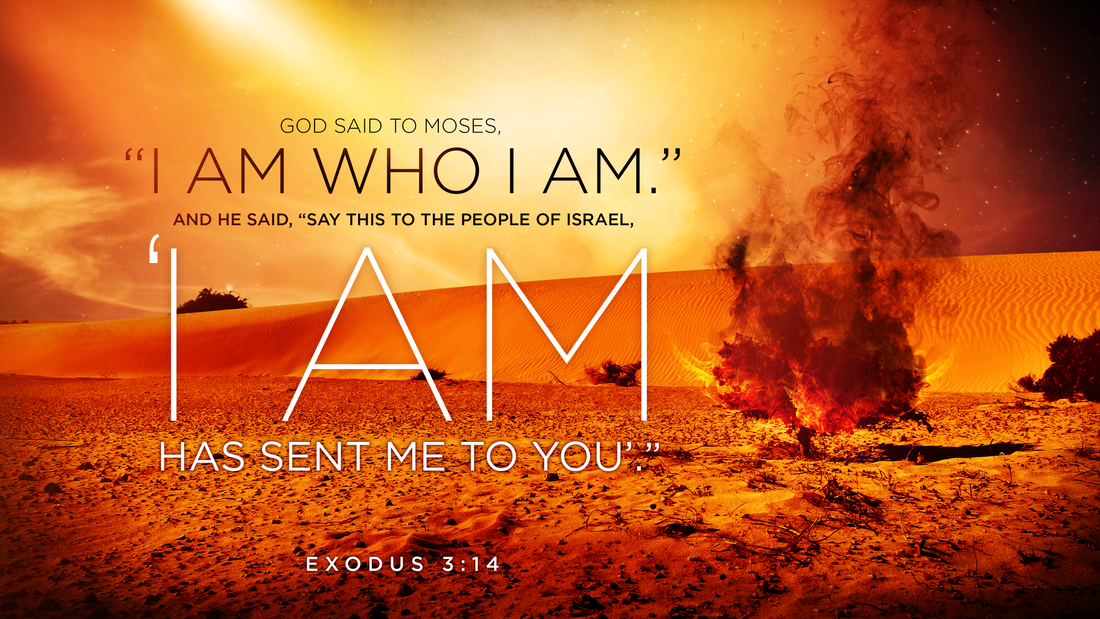
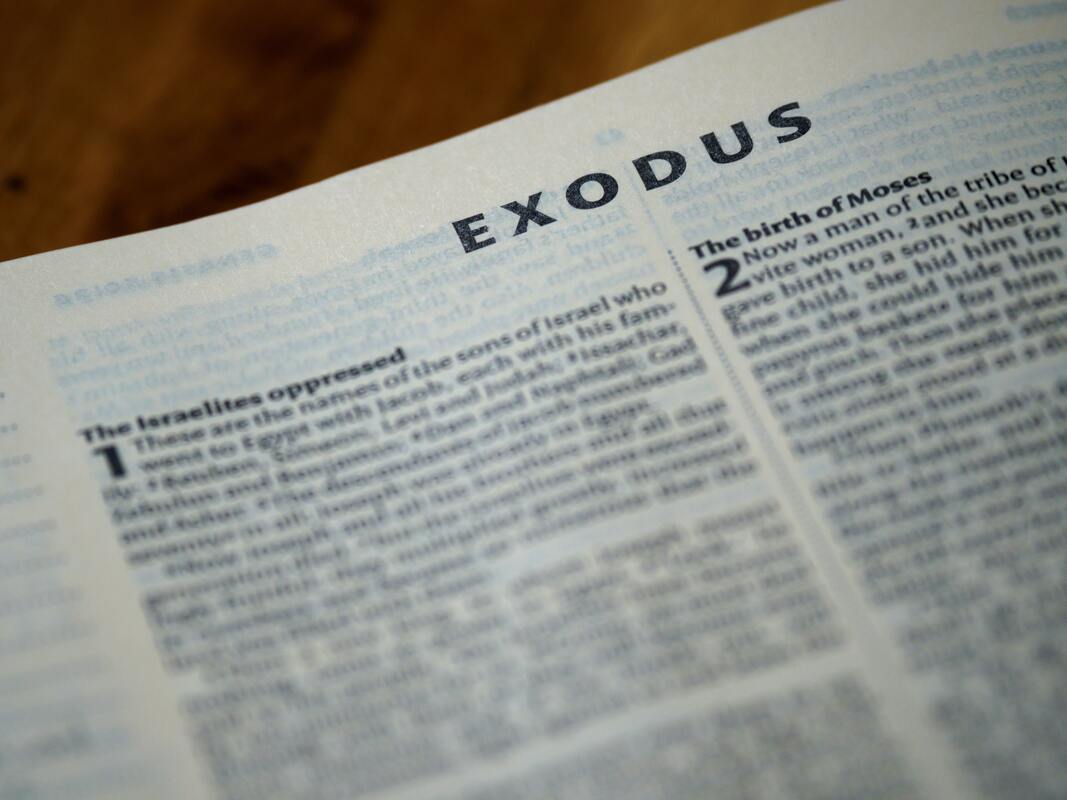



 RSS Feed
RSS Feed
